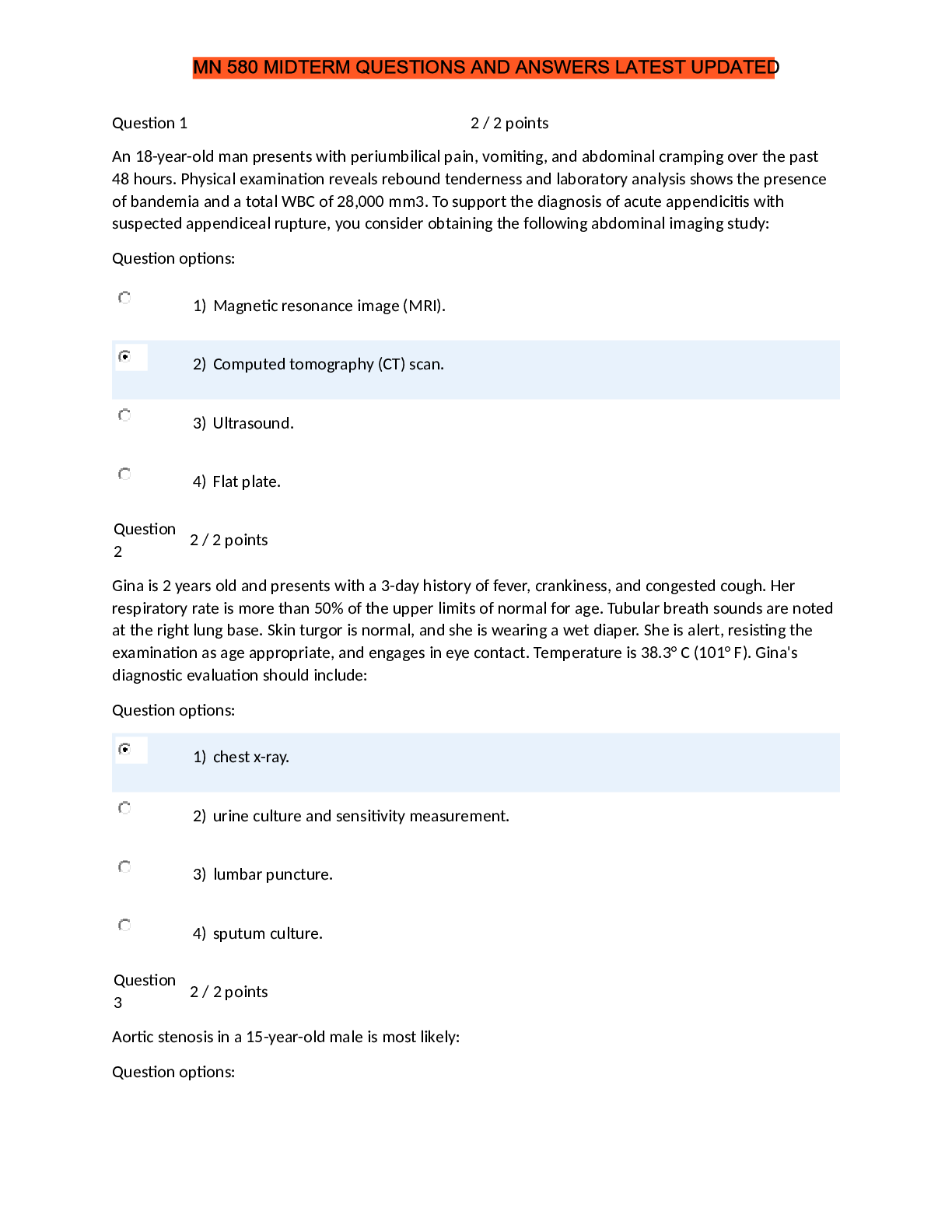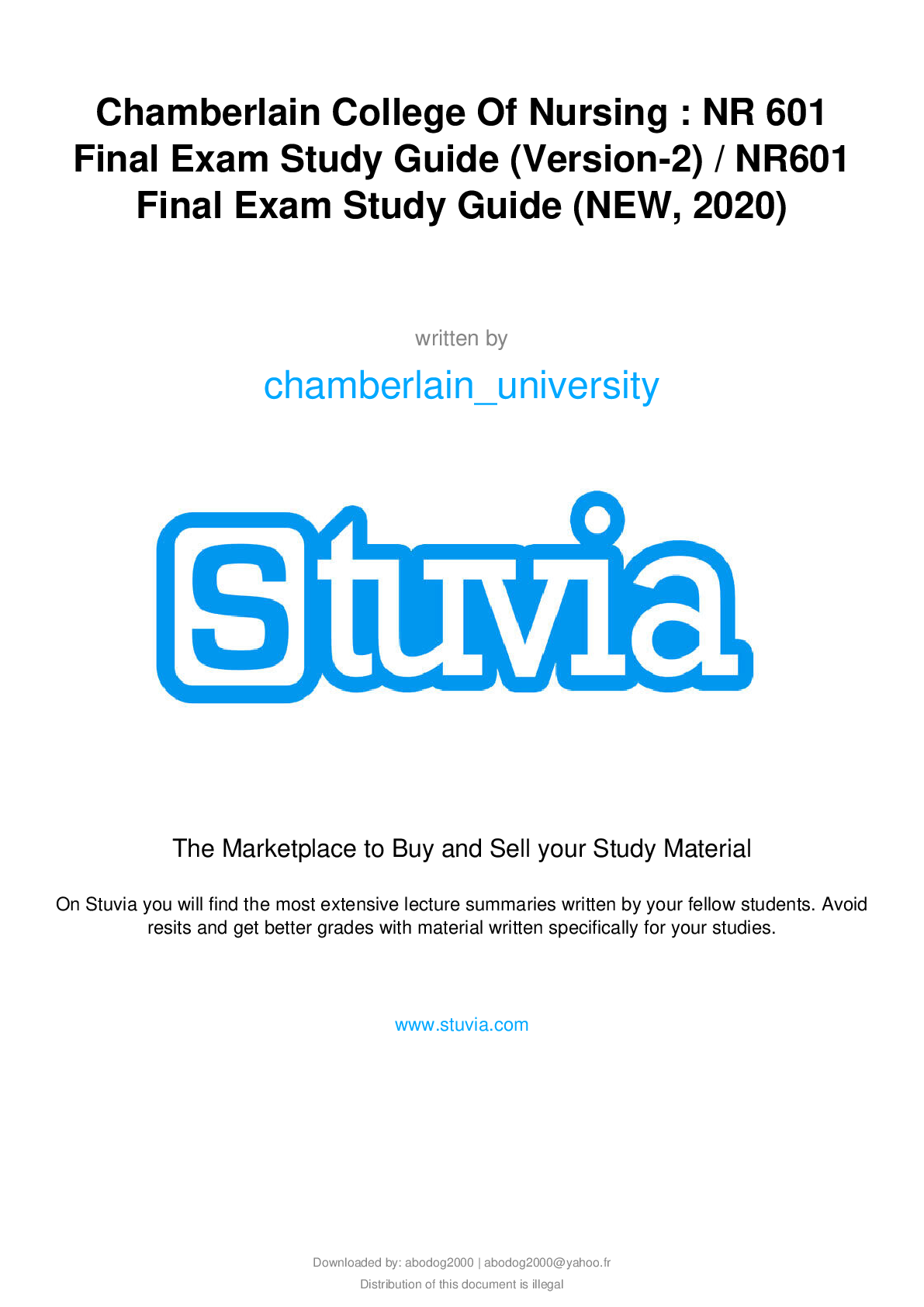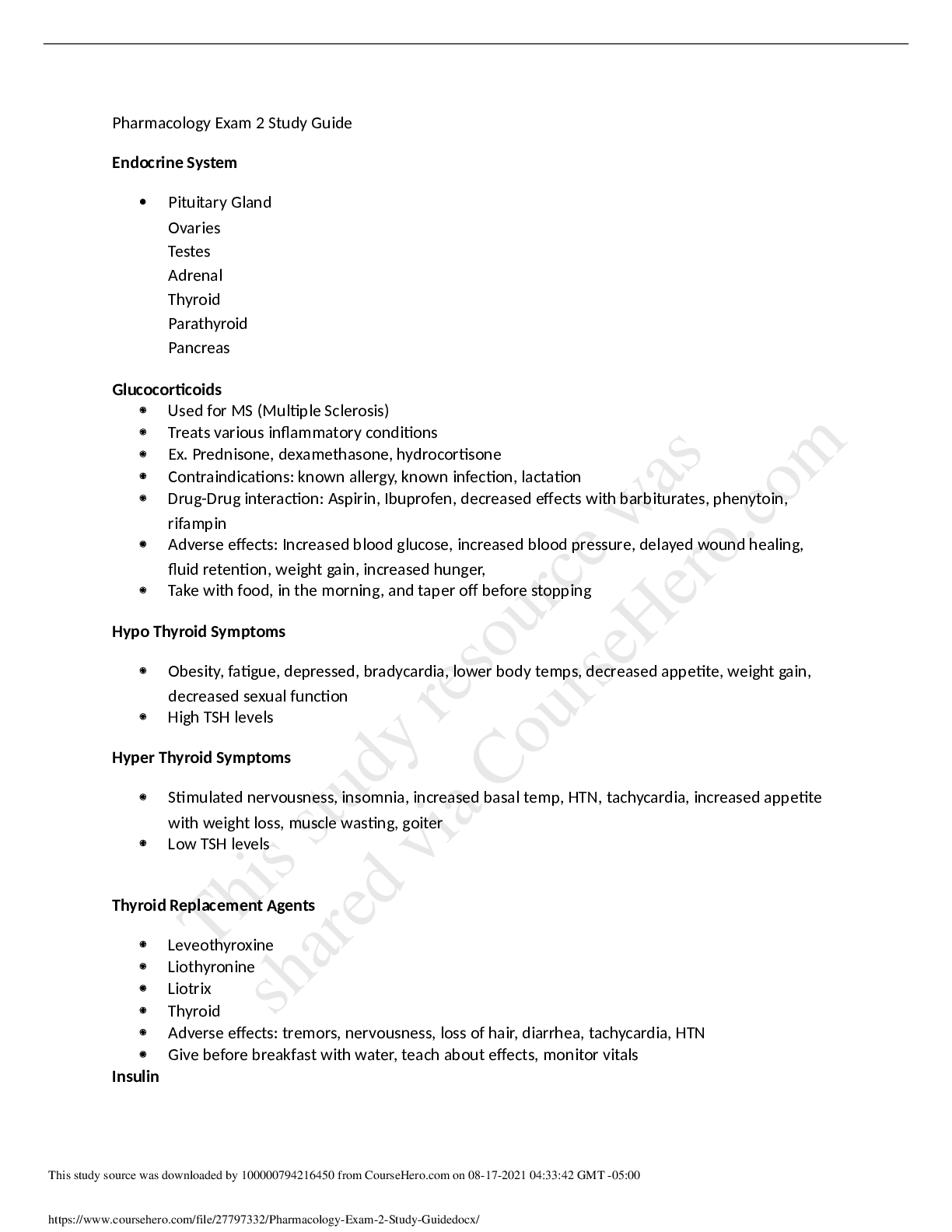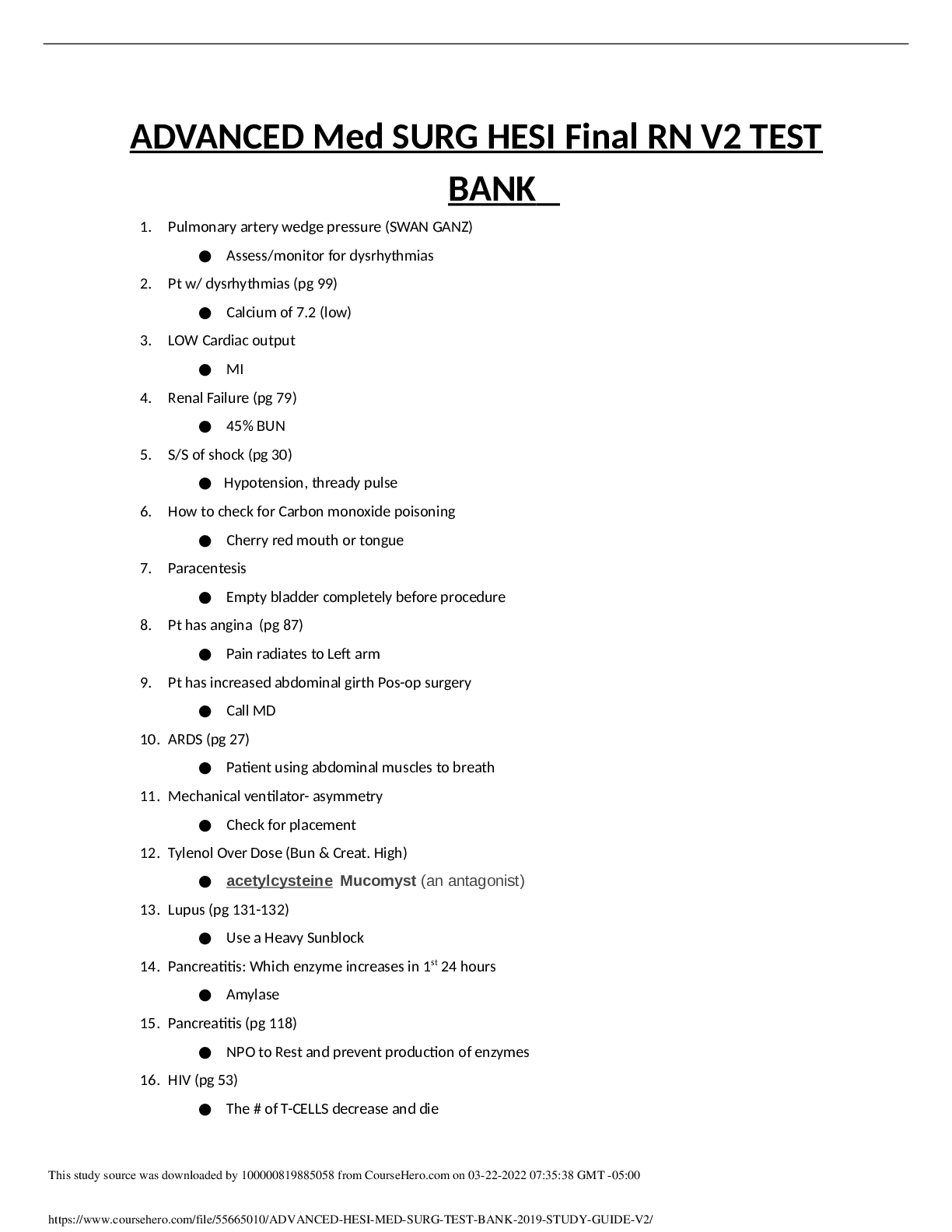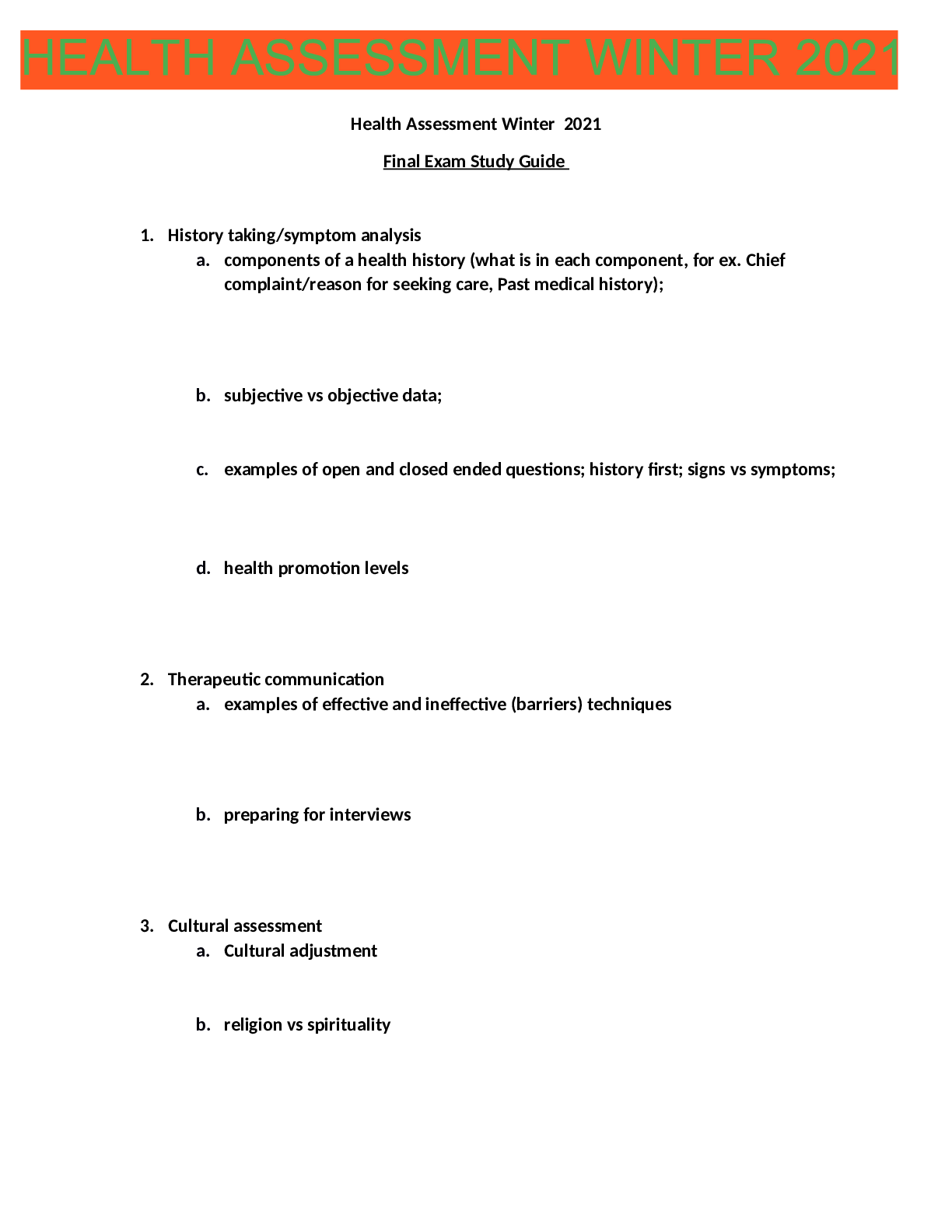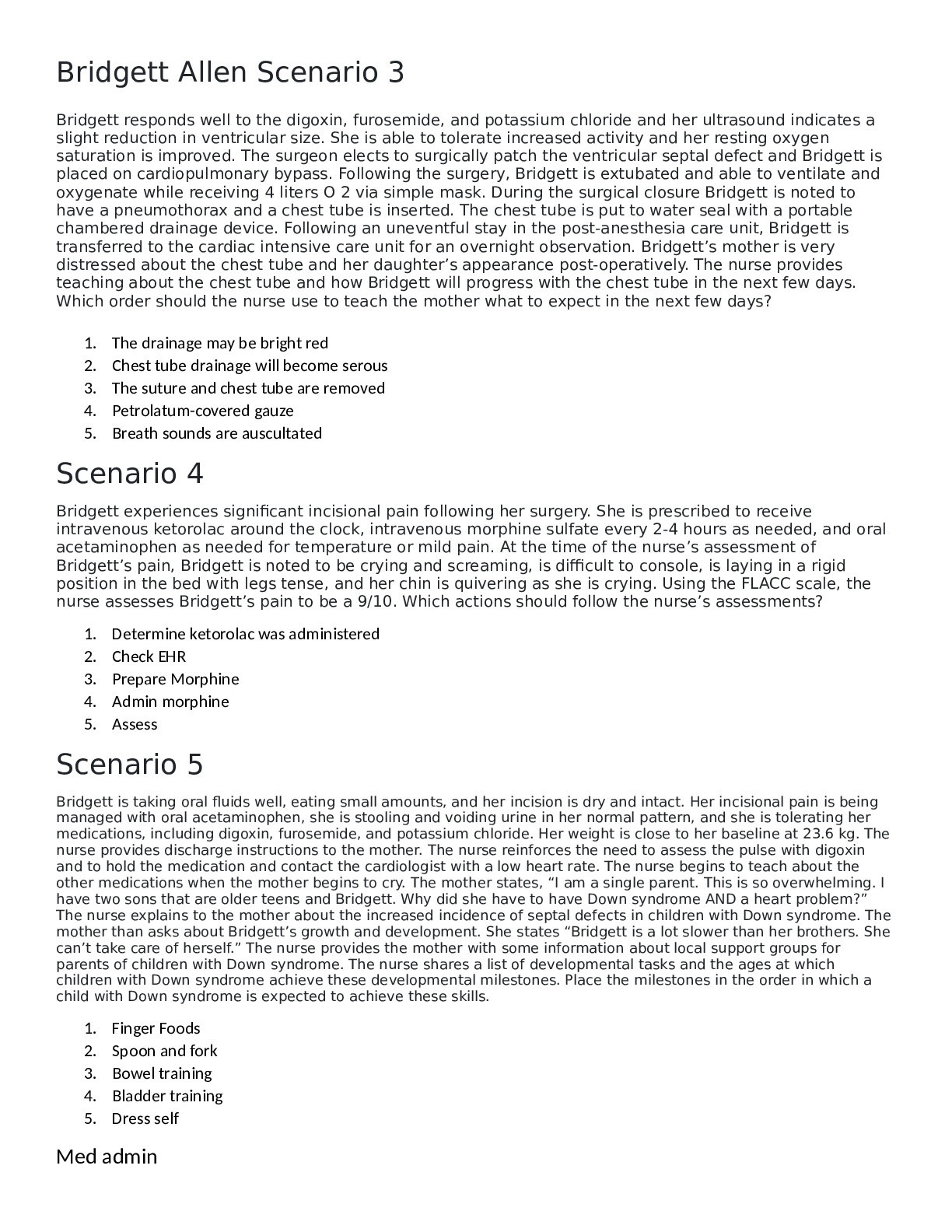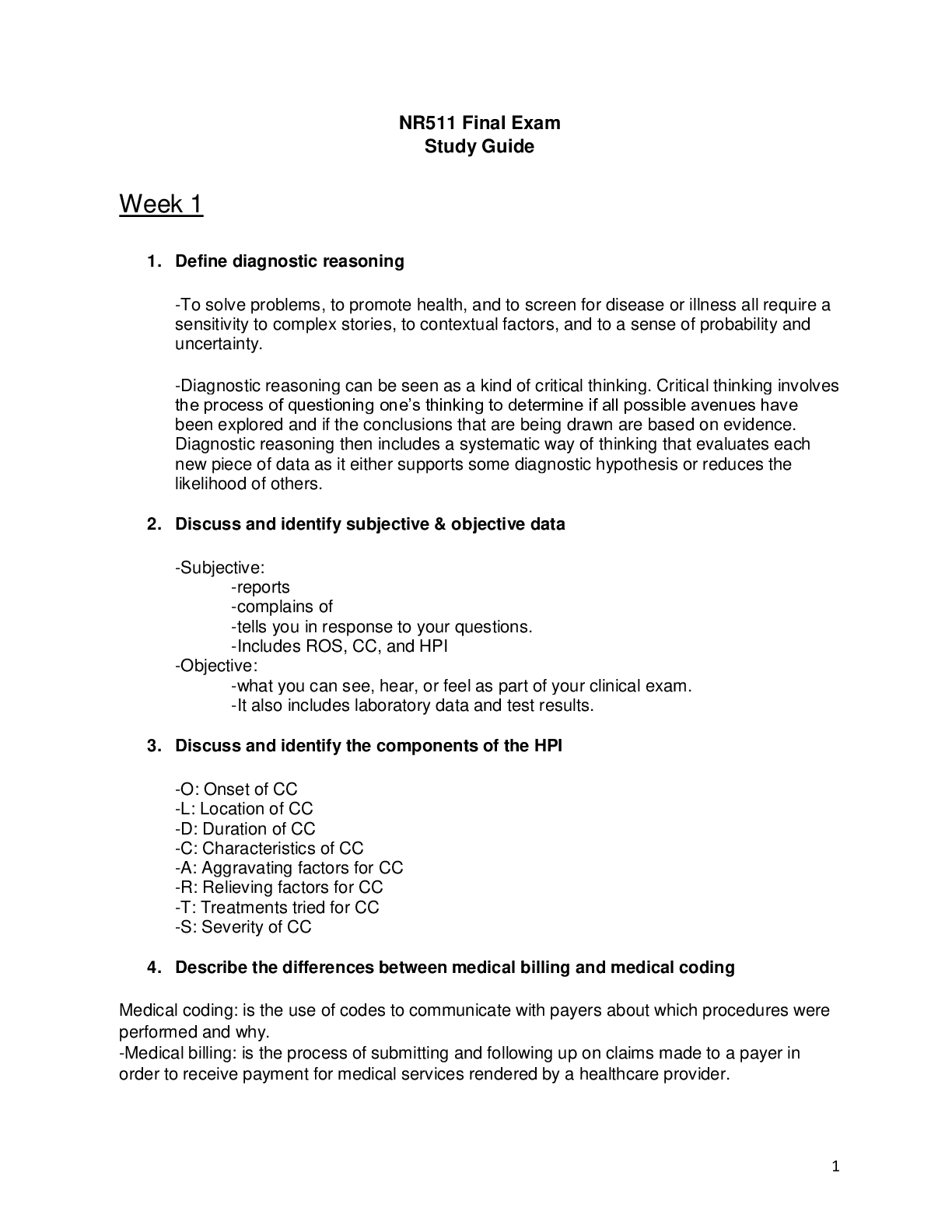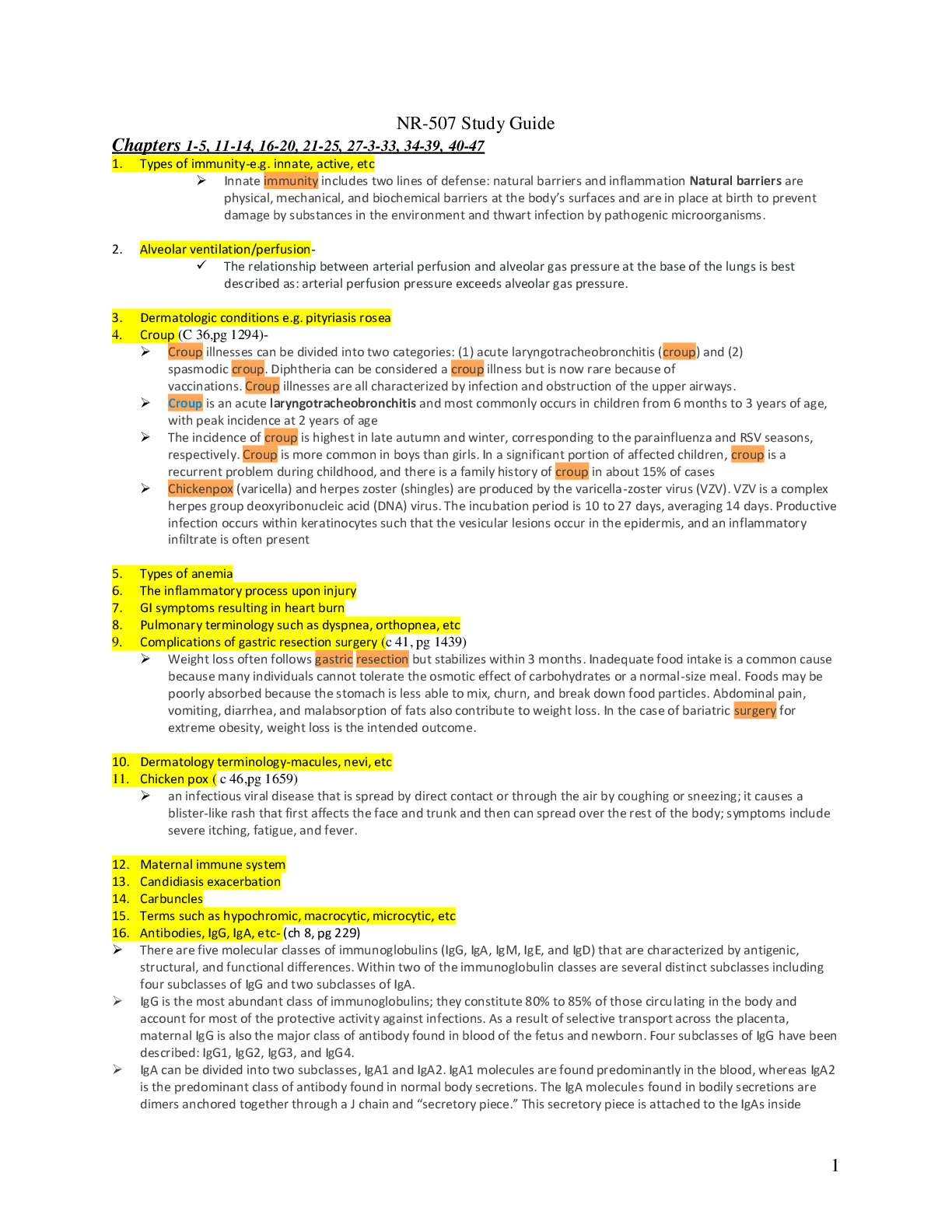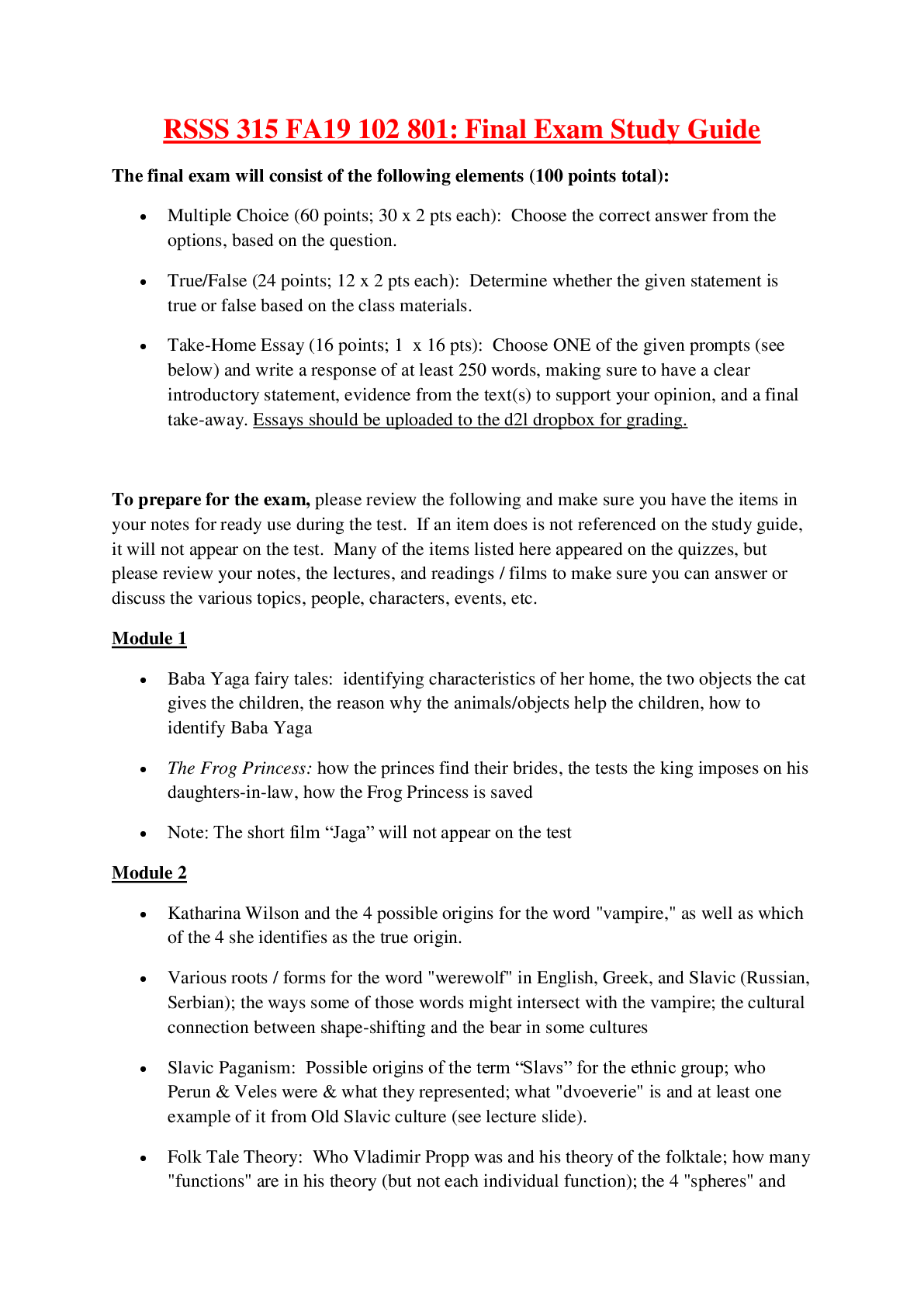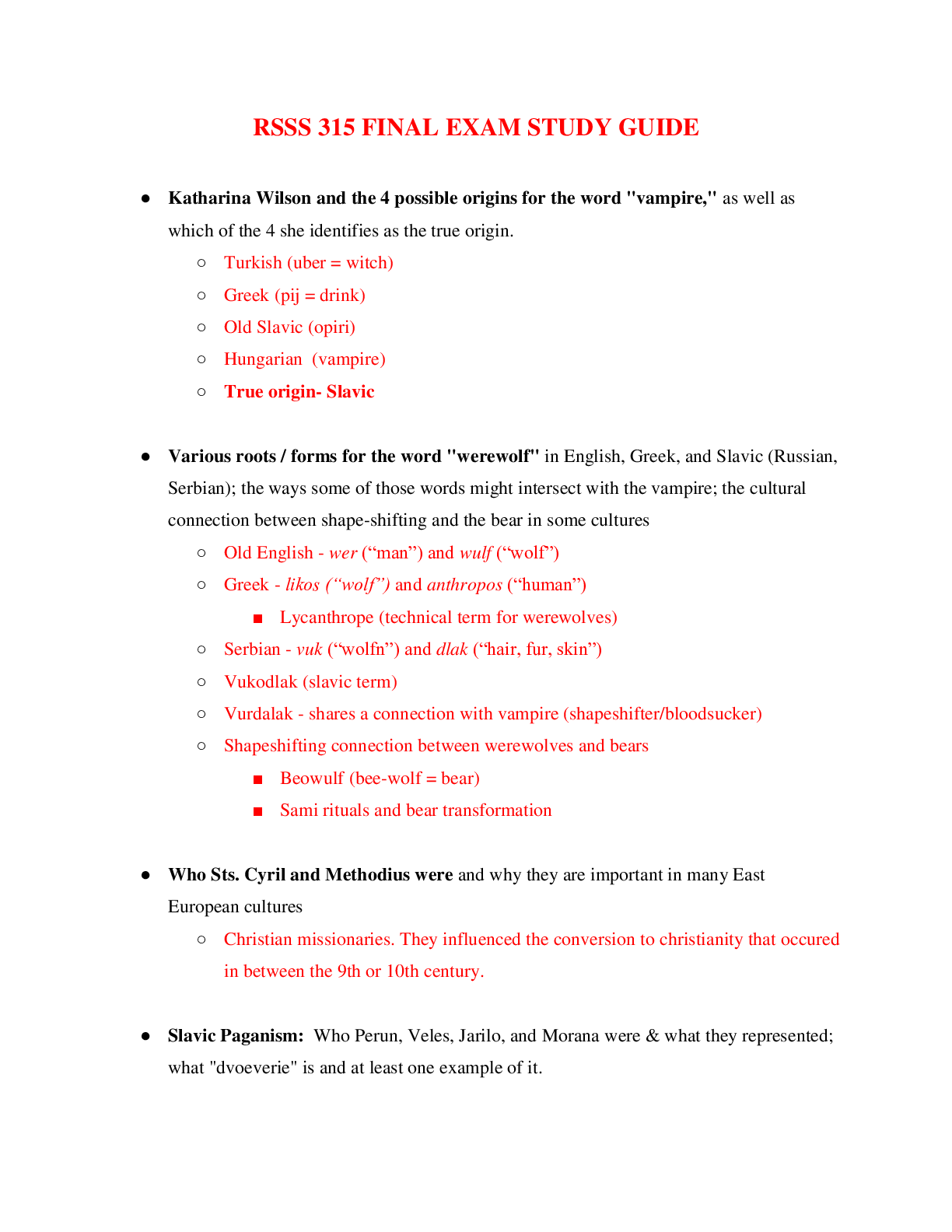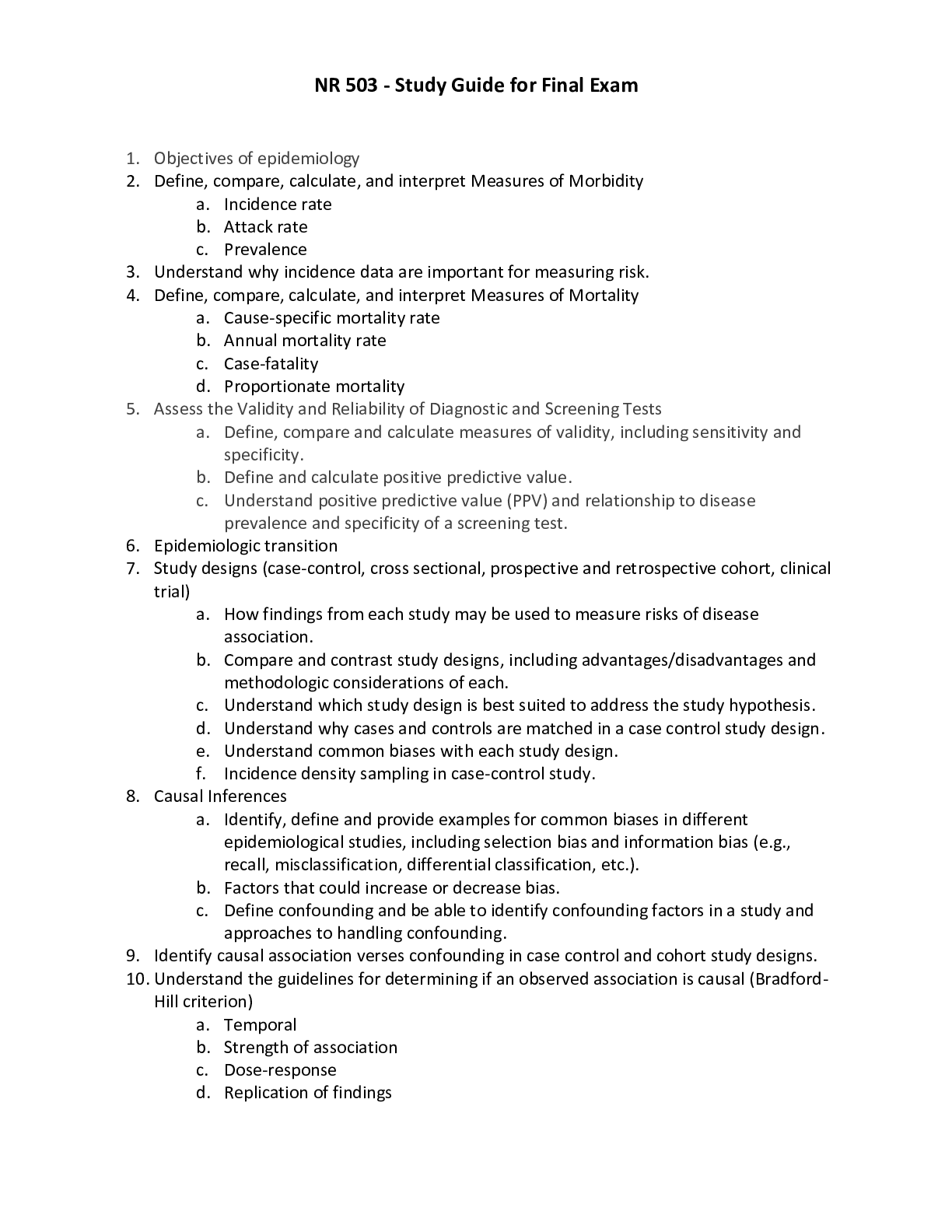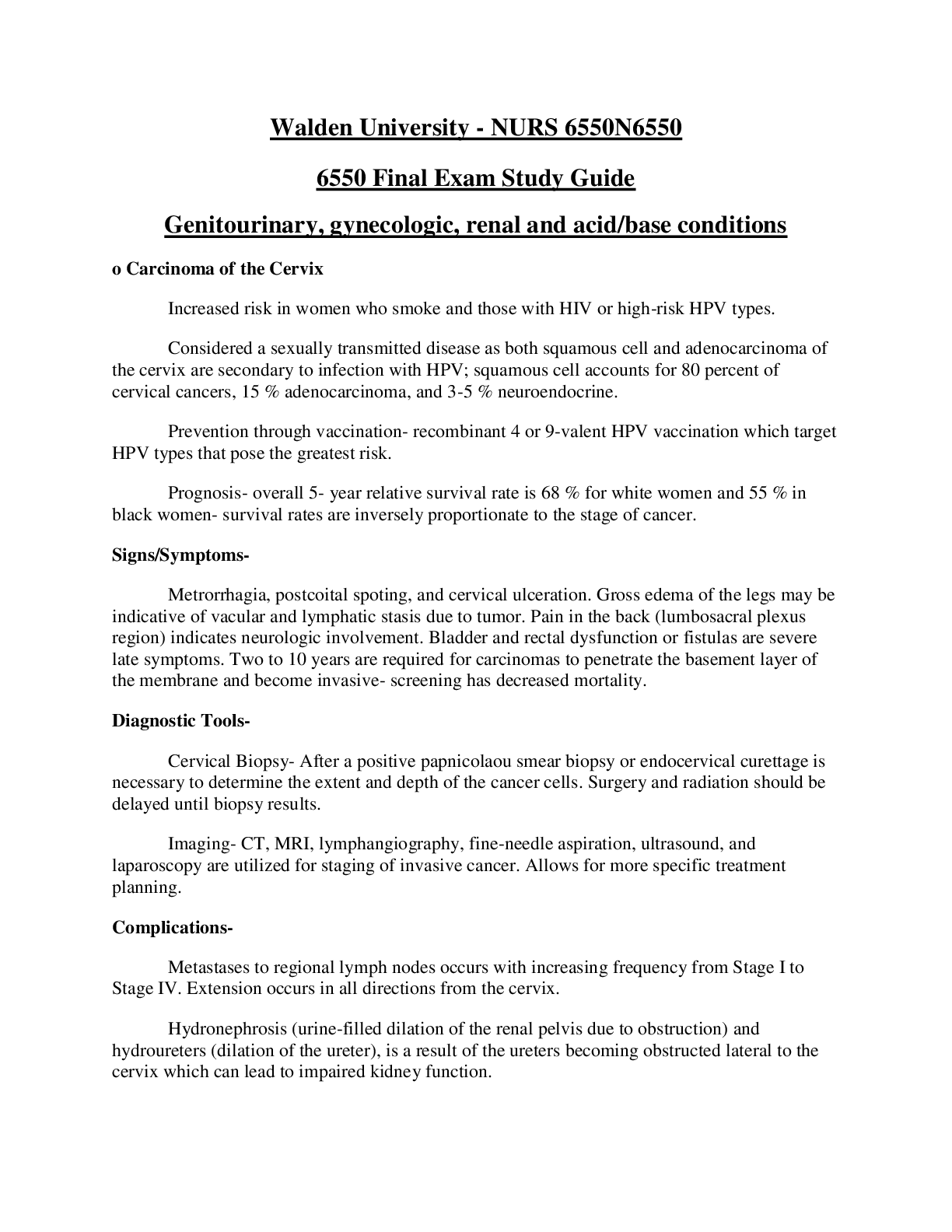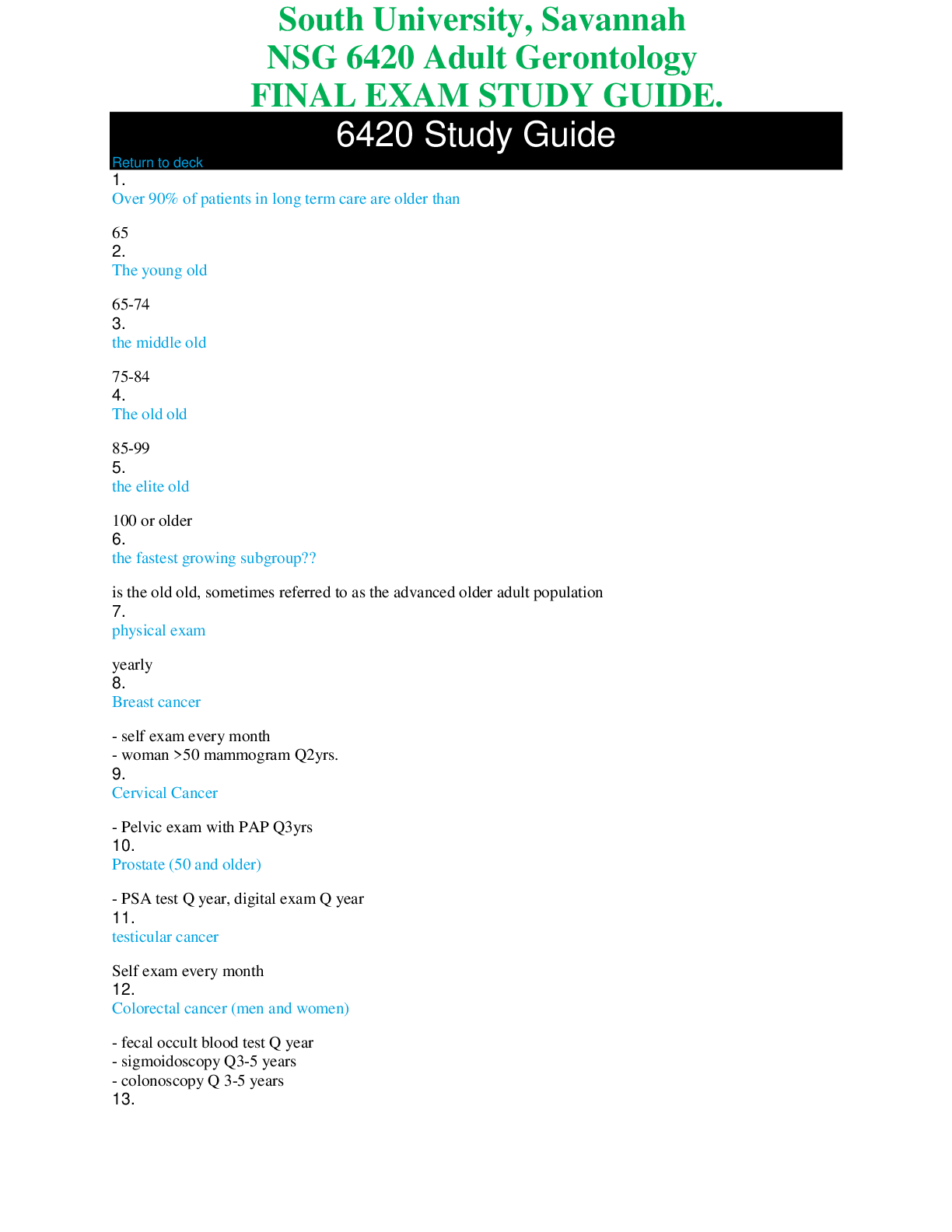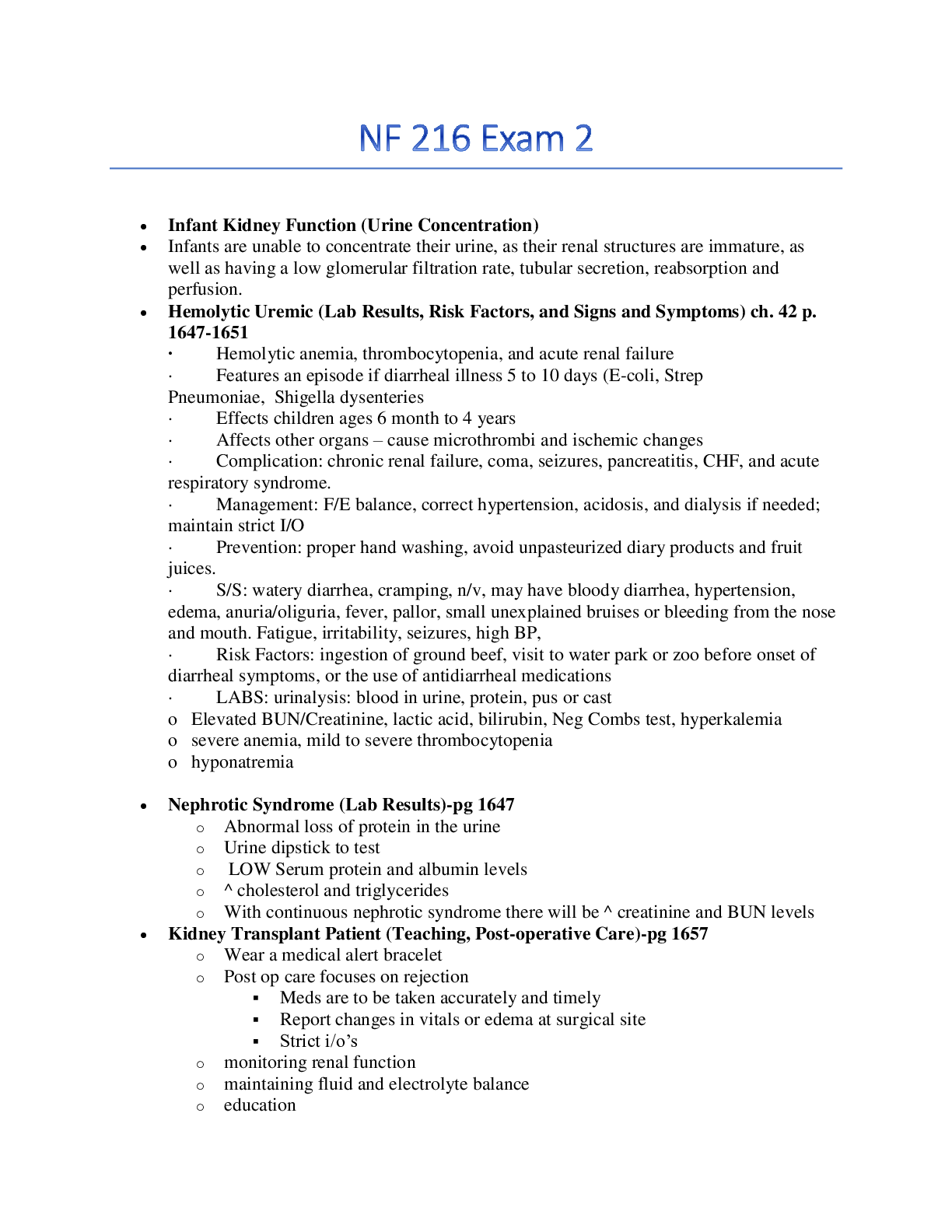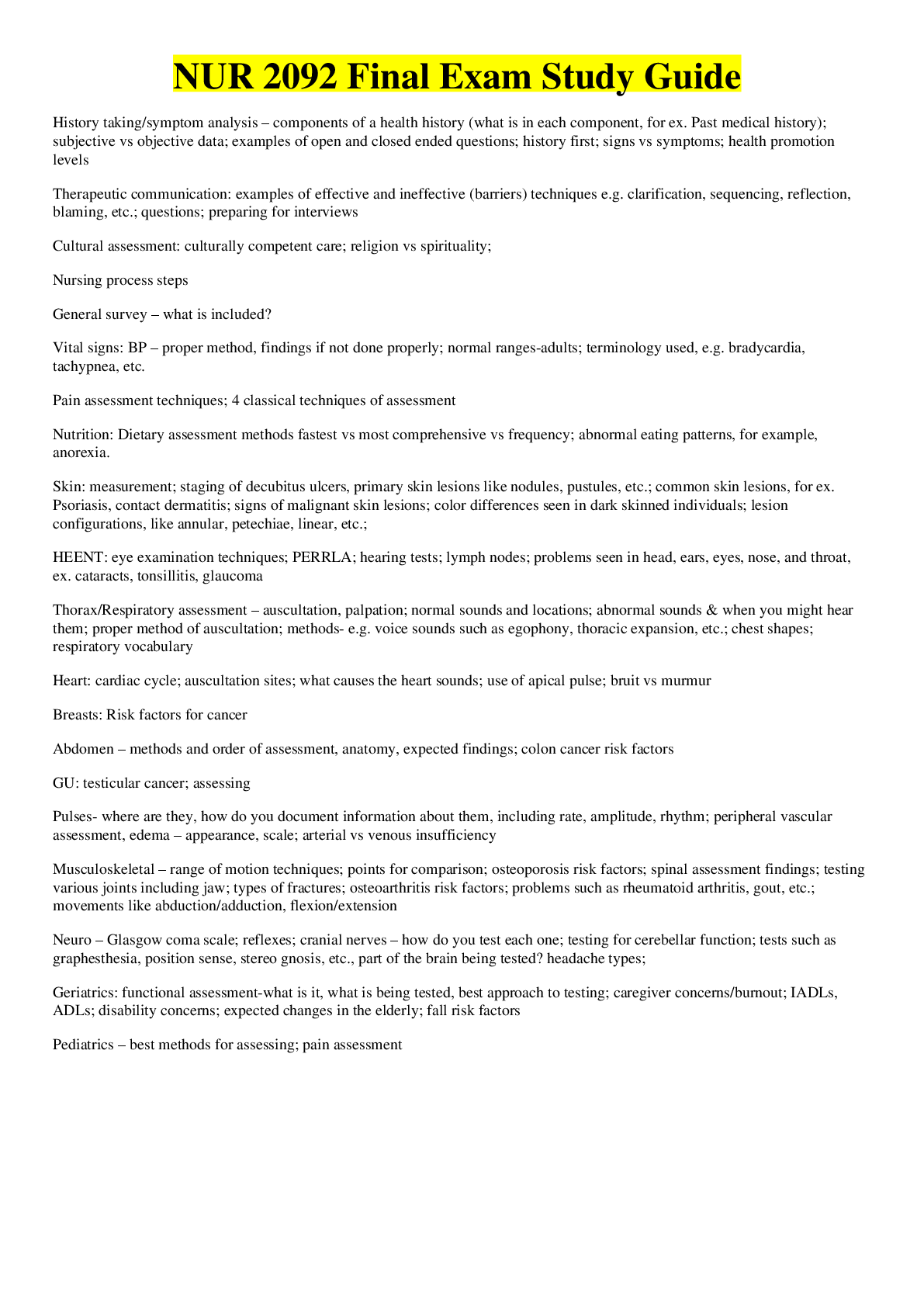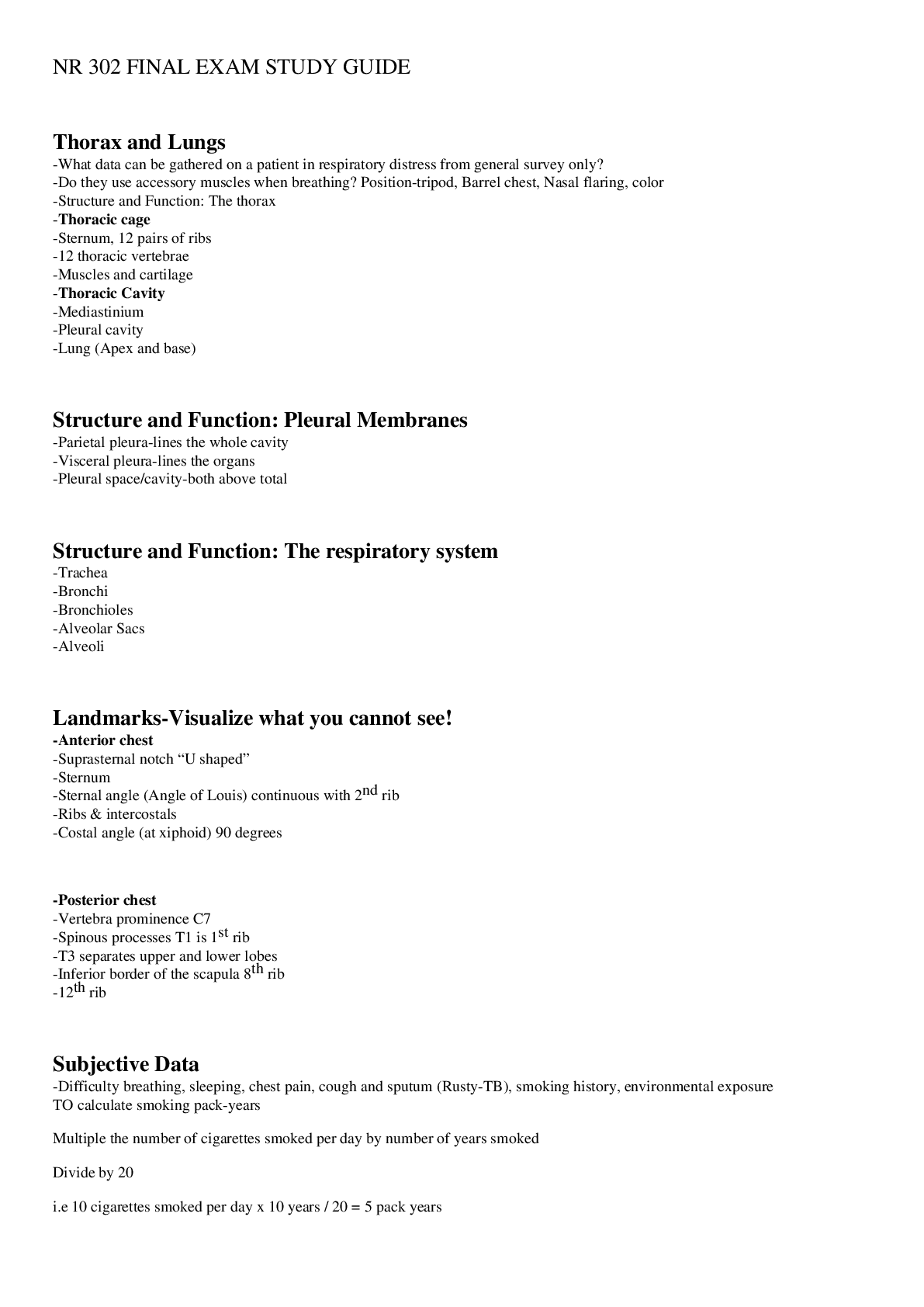*NURSING > STUDY GUIDE > NR 509 Final Exam Study Guide. (All)
NR 509 Final Exam Study Guide.
Document Content and Description Below
Behavior/Mental Health Assessment and Modification for Age Unexplained conditions lasting >6weeks should prompt screening for depression, anxiety, or both PRIME-MD (Primary Care Evaluation o... f Mental Disorders). 26 questions and take 10 minutes to complete. Used for the 5 most common=anxiety, depression, alcohol, somatoform, and eating disorders. Patient indications for Mental Health Screening: 1.Medically unexplained physical symptoms-more than half have depression and anxiety disorders 2. Multiple physical or somatic symptoms or high symptom count 3.High severity of the presenting somatic symptoms, chronic pain 4.Symptoms for more than 6 weeks 5. Physician rating as a “difficult encounter” 6. Recent stress 7.Low-self rating of overall health 8.Frequent use of health care services 9.Substance abuse. CAGE=substance-related and addictive disorders Modification for Age Elderly: -Complain of memory problems but usually is due to benign forgetfulness -Retrieve and process data more slowly and take longer to learn new information -Slower motor responses and their ability to perform complex task may diminish -Important to distinguish age-related changes from manifestations of mental disorders More susceptible to delirium which can be the first sign of infection, problems with medications, or impending dementia Infant: Assess mental status of a newborn=observing newborn activities 1.Look at human faces and turn to parents voice 2.Ability to shout out repetitive stimuli 3. Bond with caregiver 4.Self-soothe Normal VS. Abnormal Findings and Interpretation Mood disorders: compulsions, obsessions, phobias, and anxieties -Lethargic: drowsy, but open their eyes and look at you, respond to questions, and then fall asleep. -Obtunded: open their eyes and look at you but respond slowly and are somewhat confused. -Agitated depression: crying, pacing, and handwringing -Depression: the hopeless slumped posture and slowed movements. -Grooming and personal hygiene may deteriorate: Depression, schizophrenia, and dementia -Manic Episode: the agitated and expansive movement of a manic episode -Obsessive-Compulsive Disorder: Excessive fastidiousness -Lesion parietal cortex: one side neglect in the opposite parietal cortex, usually in the nondominant side -Parkinsonism: facial immobility -Paranoia: anger, hostility, suspiciousness, or evasiveness -Mania: Elation and euphoria [Show More]
Last updated: 1 year ago
Preview 1 out of 42 pages
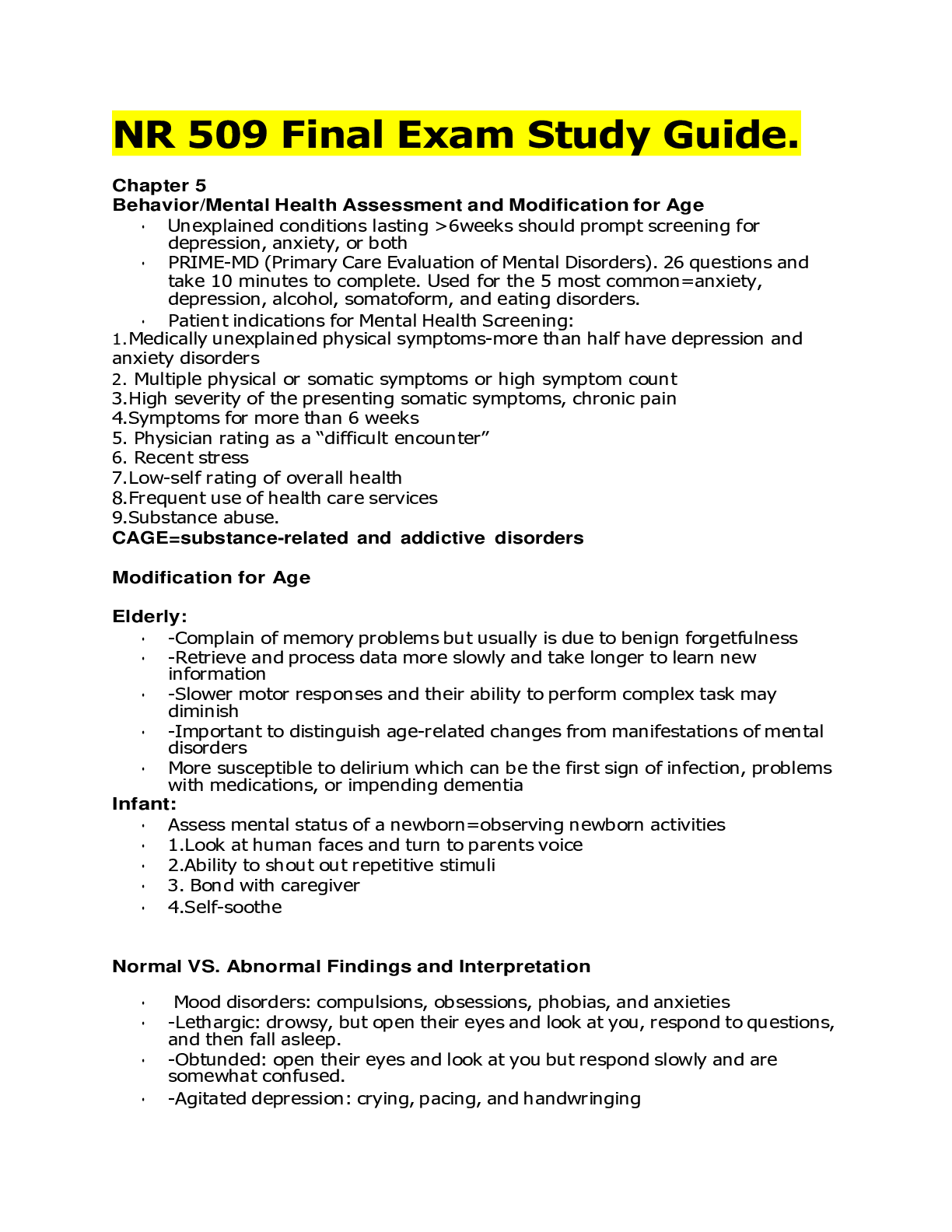
Buy this document to get the full access instantly
Instant Download Access after purchase
Add to cartInstant download
We Accept:

Reviews( 0 )
$7.00
Document information
Connected school, study & course
About the document
Uploaded On
Aug 31, 2021
Number of pages
42
Written in
Additional information
This document has been written for:
Uploaded
Aug 31, 2021
Downloads
0
Views
41

